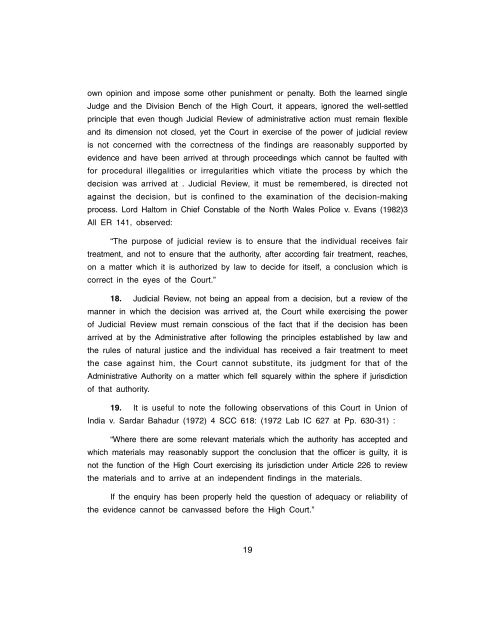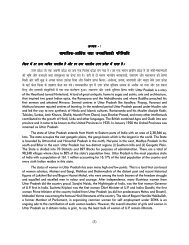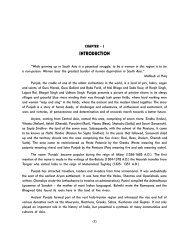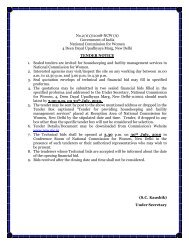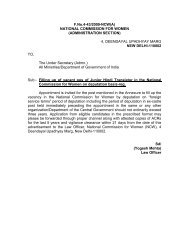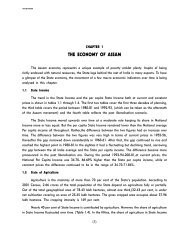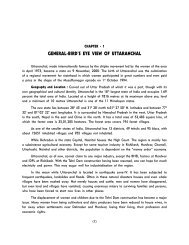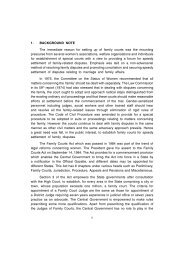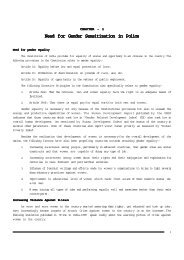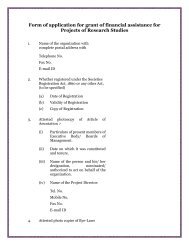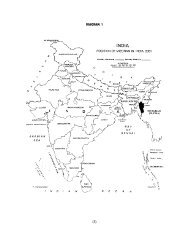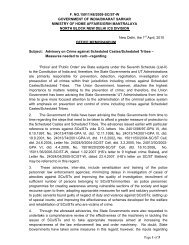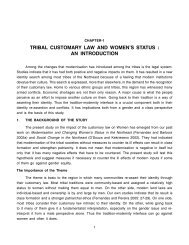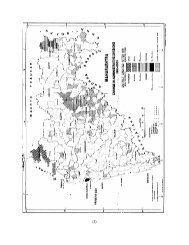Vishaka and others V. State of Rajasthan and others.
Vishaka and others V. State of Rajasthan and others.
Vishaka and others V. State of Rajasthan and others.
- No tags were found...
Create successful ePaper yourself
Turn your PDF publications into a flip-book with our unique Google optimized e-Paper software.
own opinion <strong>and</strong> impose some other punishment or penalty. Both the learned singleJudge <strong>and</strong> the Division Bench <strong>of</strong> the High Court, it appears, ignored the well-settledprinciple that even though Judicial Review <strong>of</strong> administrative action must remain flexible<strong>and</strong> its dimension not closed, yet the Court in exercise <strong>of</strong> the power <strong>of</strong> judicial reviewis not concerned with the correctness <strong>of</strong> the findings are reasonably supported byevidence <strong>and</strong> have been arrived at through proceedings which cannot be faulted withfor procedural illegalities or irregularities which vitiate the process by which thedecision was arrived at . Judicial Review, it must be remembered, is directed notagainst the decision, but is confined to the examination <strong>of</strong> the decision-makingprocess. Lord Haltom in Chief Constable <strong>of</strong> the North Wales Police v. Evans (1982)3All ER 141, observed:“The purpose <strong>of</strong> judicial review is to ensure that the individual receives fairtreatment, <strong>and</strong> not to ensure that the authority, after according fair treatment, reaches,on a matter which it is authorized by law to decide for itself, a conclusion which iscorrect in the eyes <strong>of</strong> the Court.”18. Judicial Review, not being an appeal from a decision, but a review <strong>of</strong> themanner in which the decision was arrived at, the Court while exercising the power<strong>of</strong> Judicial Review must remain conscious <strong>of</strong> the fact that if the decision has beenarrived at by the Administrative after following the principles established by law <strong>and</strong>the rules <strong>of</strong> natural justice <strong>and</strong> the individual has received a fair treatment to meetthe case against him, the Court cannot substitute, its judgment for that <strong>of</strong> theAdministrative Authority on a matter which fell squarely within the sphere if jurisdiction<strong>of</strong> that authority.19. It is useful to note the following observations <strong>of</strong> this Court in Union <strong>of</strong>India v. Sardar Bahadur (1972) 4 SCC 618: (1972 Lab IC 627 at Pp. 630-31) :“Where there are some relevant materials which the authority has accepted <strong>and</strong>which materials may reasonably support the conclusion that the <strong>of</strong>ficer is guilty, it isnot the function <strong>of</strong> the High Court exercising its jurisdiction under Article 226 to reviewthe materials <strong>and</strong> to arrive at an independent findings in the materials.If the enquiry has been properly held the question <strong>of</strong> adequacy or reliability <strong>of</strong>the evidence cannot be canvassed before the High Court.”19


